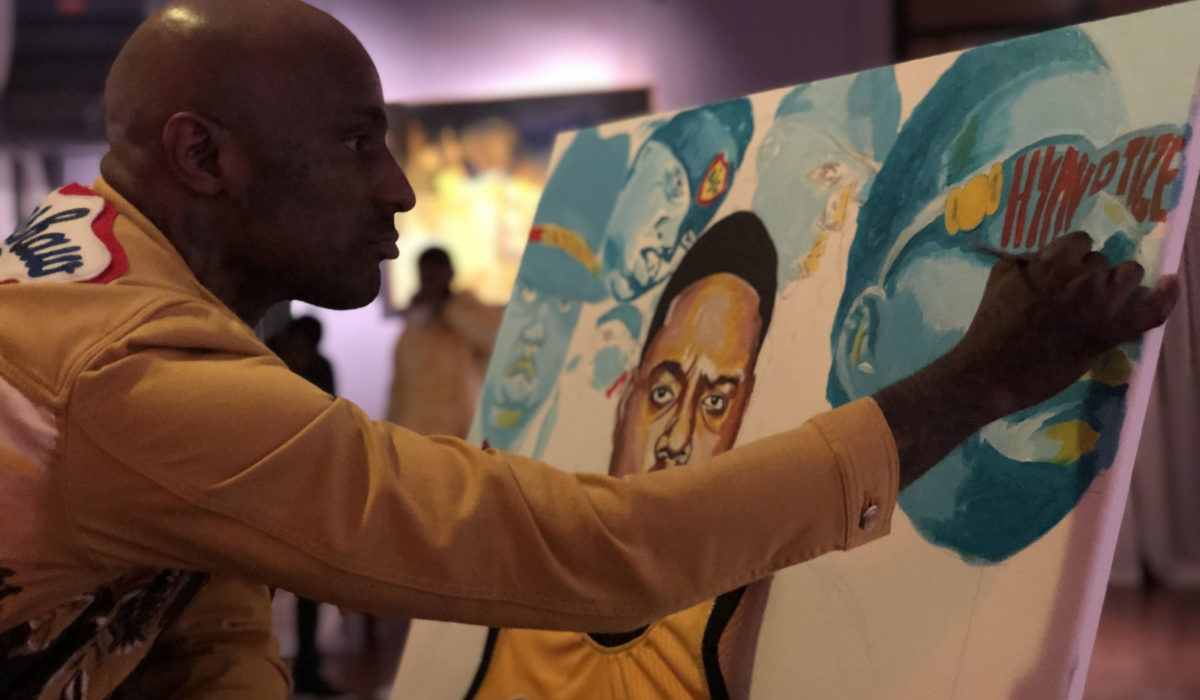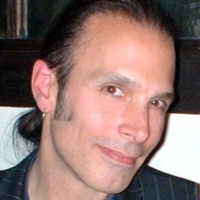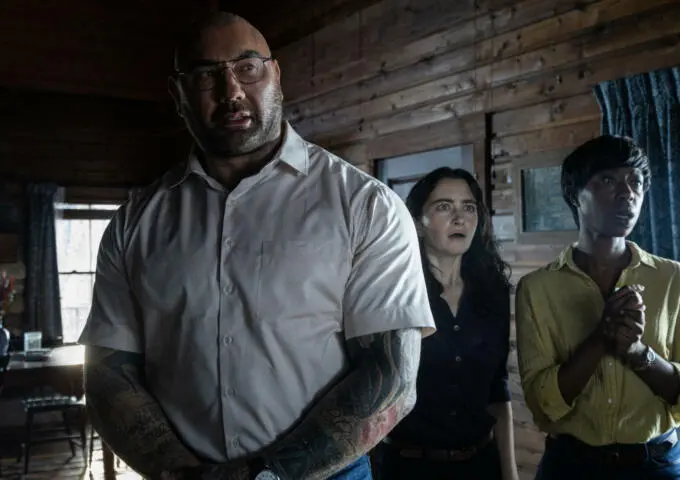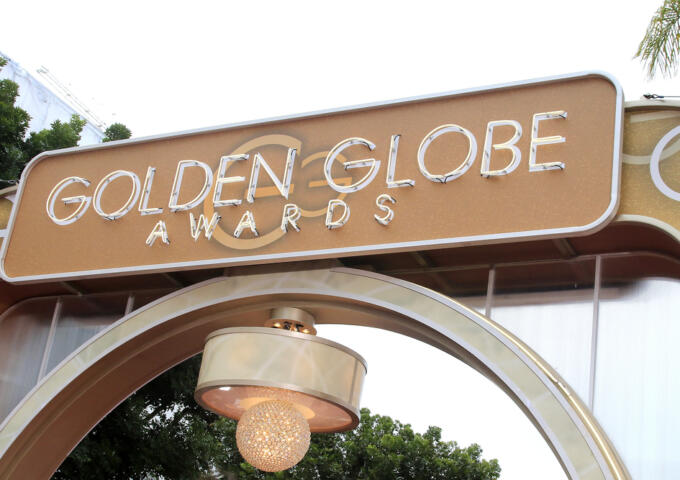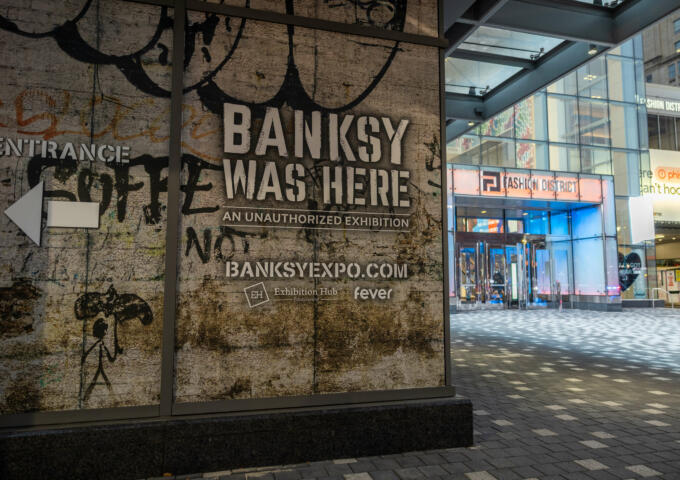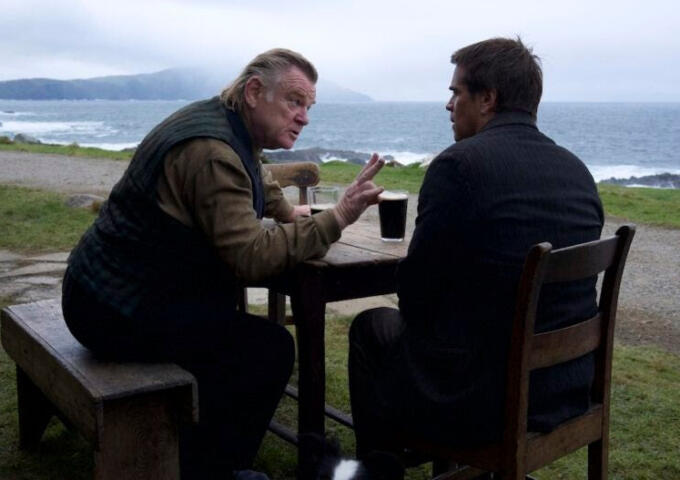In December 2018, this writer was preparing to interview a then-reuniting State Property – the Philly all-star, 1990s’ rapping supergroup which famously featured Freeway, Beanie Sigel and friends – however noticeably one of its members was not there: Oschino Vasquez.
Sure, his absence from the Roc-A-Fella-signed act and its troubles started with Sigel over money, but that beef had long been squashed. He also did a three-year stint at SCI Dallas for marijuana possession.
What happened was, quite frankly, the solo rapper Oschino no longer wanted a boss (or bosses) and had bigger fish to fry: a burgeoning career in painting with a hip-hop edge as sharp as any of his raps and fanciful flows.
After debuting his work at an exhibition in Upper Darby, Oschino is prepping his first painting/mentoring class for young adults for June 1, as well as preparing to drop his new solo album, “Appetizer 8,” when we spoke.
The last time we were supposed to talk we didn’t – the occasion of the State Property reunion. Why didn’t you do the reunion even after you put aside all beef with Beans?
Because he’s still considered the boss of State Property, and I just can’t have him as my boss. He’s not an honest person. I’d rather just be on my own than have that guy as my boss.
Is that why you left State Property the first time around – just not fond of bosses?
Yeah, I just didn’t want anyone in that position, touching my money or anything. I just didn’t want to deal with that anymore. It’s up to you to make a decision, in that case, to stay or leave. Me? I decided to leave.
Do you talk to the guys in State Property?
Not really. We’re OK, I guess. I’m the wild card – the one who tells the truth, the one who can’t let too much slide without saying something.
Since you’re releasing new music on your own, is there anything to miss about the glory days of Roc-A-Fella?
Not really. It’s better now. Back then, your song had to get approved, the label could blackball you, and not pay you. Now you could get a hit in one day if the internet loves it. It’s sweet now. The money goes right into your account with no middleman. So many ways to get paid.
And Philly hip-hop, now?
It’s still gritty, still about murder and drugs. Just has more harmony in it.
Hip-hop is everything, everywhere. As a musical and lyrical form, where is it at this point in your life? Your solo work?
I’ll always do music until I die. My next thing, “Appetizer 8,” is out in several weeks. Y stuff is real thought out. The honest true stories I tell will never get played out – there’s going to be mothers on drugs one hundred years from now. No sugar coating. My painting is something I do for my soul.
When and why did painting become a thing?
I always did ‘art.’. I just never painted. When I was in prison, that was one of my hustles – doing portraits. I stopped drawing for years until somebody saw one of my pictures on the internet. They went crazy over it. My renewed interest started there. It’s been a year-and-a-half since I’ve been painting.
I have seen you speak out for, and against, Meek Mill with whom you use to be friendly. What do you think of his new role as a prison reform advocate?
Meek was with me before anybody knew him. It was basically a big-brother-little-brother thing. I really got the love for him, and am proud of him. I think that’s great they have him as a prison reform advocate. Really, I wouldn’t care who was doing that, as long as it gets done.
Your painting stuff is good, solid, contemporary and touching on issues of black consciousness. What did you learn about yourself in prison?
Patience. That I was a fighter…. and a thinker, too. I learned that it’s hard coming home from prison to nothing. It’s so easy to go back- you have to really want to be out, and productive. I fought. In prison, you learn what you’re made of. It really humbled me.
How did you apply that humility and that thinking to what you do as a painterly artist?
Along with the painting, I have to say that, before prison, I would have never have gone to truck driving school, because my ego would have gotten in the way. My painting? I appreciate everything now, so that’s a part of it. So many people doing life. So many people never coming home. Everything is special, and that’s not to be taken for granted, since it can all be taken away.
How is doing what you do as a painter a correlation to your work as a musical artist?
It’s the total opposite. When I’m painting, I’m artsy and soft. When I’m rapping, I’m hard. The people who buy my records know me, so I can’t get softer.
You’ve got a mentoring and teaching workshop coming up at YESPhilly at 1709 North Broad. What’s that about?
I’m teaching kids how to paint. They don’t talk about art that often if the ghetto, let alone teach it.
A lot of your work touches on hip-hop multiculturalism and old school heroes such as Biggie. What else do you see yourself touch upon, aesthetically? And who were your primary influences when it came to painting, initially?
I’m working on abstracts now. Michaelangelo is something to see. He was ahead of his time. Basquiat is overrated in my book. The stuff he did anybody could do.
What’s brought you the most amount of pride in the art game thus far?
For my second-ever painting, that’s pretty good. Who knows? I may be a genius.
TWITTER: @ADAMOROSI
